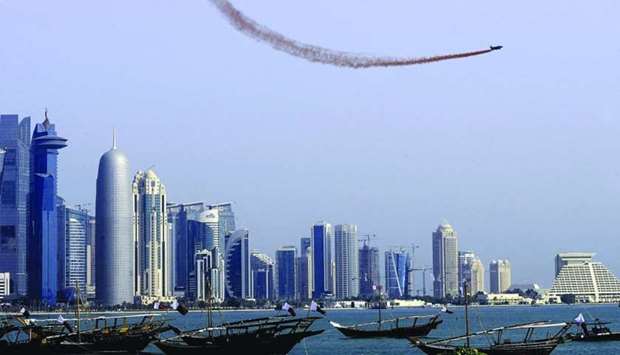*Middle East and Central Asia (MCD) countries’ sovereign issuances made up the majority of emerging market sovereign issuances since March-end, says IMF
Qatar and two other higher-credit rated countries in the GCC region have managed to “maintain market access, with large placements in international capital markets” in recent months, the International Monetary Fund (IMF) said in relation to market sentiment following the pandemic outbreak.
The Middle East and Central Asia (MCD) countries’ sovereign issuances made up the majority of emerging market sovereign issuances since the end of March (more than 60%), the IMF said in its latest regional outlook.
Secondary dollar spreads have narrowed across the region, although they remain elevated, while market pressures on regional currencies appear to have abated. Growth in credit to the private sector and deposits up to April remained broadly stable, though the former had been declining since the middle of last year.
Nonetheless, although the region’s banking systems appear resilient and well capitalised, pockets of existing vulnerabilities may yield rising nonperforming loans should the crisis be prolonged with lasting economic scarring.
The Covid-19 pandemic continues to spread across the MCD region, though some countries are gradually relaxing restrictions, the IMF said in its latest regional outlook.
The region reacted swiftly, with relatively stringent containment measures, though less so in fragile states. Related deaths have also been comparably contained in the region.
The synchronised and global nature of the downturn has also led to a contraction in trade, disruptions to supply chains, and a collapse in tourism and remittances—with the latter accounting for about 14% of GDP for fragile and conflict-affected countries in the region.
While data are not yet available for the current period, changes in unemployment rates in the region during past crises (such as during the global financial crisis) were usually minimal, partly due to the predominance of relatively secure public-sector jobs.
The region has also been hit hard by the oil shock, the IMF noted. The Organisation of Petroleum Exporting Countries and other major oil producers' (Opec+) agreements from March and April (and subsequent expansion), together with a reduction in US shale oil production and the recent improvement in market expectations as economies reopen, succeeded in stabilising oil prices, which have recovered half of the losses since the end of 2019 but remain far below pre Covid-19 levels.
Nonetheless, the larger production cuts implied by the Opec+ agreements together with lower oil prices will have a negative impact on exports. These factors have led to a stronger-than-anticipated impact on activity in the first half of 2020, while the recovery is projected to be more gradual than previously forecast, in line with a weaker global recovery.
March saw sudden reversals of capital flows from emerging markets generally, with the region experiencing an estimated $6bn to $8bn in portfolio outflows.
Nonetheless, IMF noted, “the actual size of outflows could have been larger, as official data are not yet available. Market sentiment has since improved, reflecting, in large part swift and extensive actions by monetary and fiscal authorities in advanced economies.”


